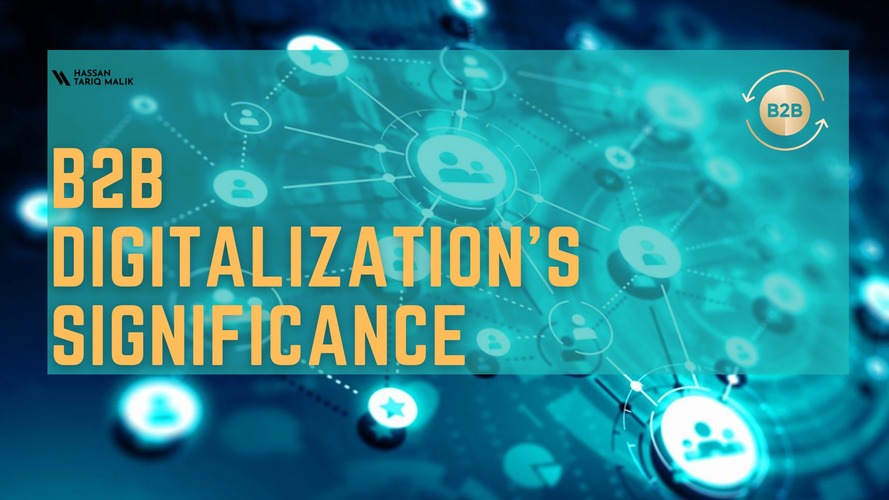In today’s digital age, the world of business is constantly evolving, and companies are always looking for ways to improve their operations and stay ahead of the competition. One significant trend in recent years has been the increasing focus on B2B digitalization. This refers to the process of adopting digital technologies and tools to enhance and streamline business operations between companies. In this article, we will explore the significance of B2B digitalization and how it is transforming the world of business.
Enhanced Productivity and Efficiency
Enhanced productivity and efficiency are two of B2B digitalization’s most important gains. Using digital tools and technologies, businesses can automate a range of processes, such as data entry, billing, and order processing. As a result, less manual involvement is required, which reduces errors and speeds up the entire process. Businesses can now analyse and track their operations in real time thanks to digitalization, which also gives them access to intelligent data and the ability to make wise decisions.
Enhanced Cooperation and Communication
B2B digitalization also fosters inter-company cooperation and communication. Regardless of their location, businesses may easily share information and work together on projects with the help of digital technologies like cloud-based platforms and web portals. This not only boosts productivity but also encourages teamwork and collaboration, which can result in better business outcomes.
Enhanced Customer Experience
When engaging with a business, its customers expect a seamless and personalised experience. B2B digitalization can help companies deliver on these expectations by providing them with tools to better understand their customers’ needs and preferences. For instance, digital tools can collect and analyse customer data, allowing companies to tailor their offerings and services to meet customer demands.
Improved Data Security
B2B digitalization also improves data security by providing companies with secure platforms and protocols to store and share their sensitive data. With digital tools such as encryption, firewalls, and secure cloud-based platforms, companies can protect their data from unauthorised access and cyber threats.
Improved Supply Chain Management
B2B digitalization can help companies improve their supply chain management by providing them with real-time data and insights into the movement of goods and services. This can help companies identify bottlenecks and inefficiencies and take corrective actions to improve their operations.
Greater Agility and Flexibility
Digital technologies and tools provide companies with greater agility and flexibility, enabling them to respond quickly to changing market conditions and customer demands. For instance, companies can leverage digital tools to quickly launch new products or services and adjust their pricing and promotional strategies to stay competitive.
Improved Decision-making
By giving businesses access to real-time data and insights into their operations, B2B digitalization can assist businesses in making better decisions. Companies can make data-driven decisions that increase their bottom line by evaluating this data in order to spot trends, forecast customer behaviour, and detect trends.
Increased Scalability
Companies may scale their operations effectively and quickly thanks to digital tools and technologies. For instance, cloud-based platforms give businesses the flexibility to quickly scale up or down their processing and storage capacity as needed without having to pay high infrastructure fees.
Increased Customer Retention Rate
By leveraging digital tools and technologies, companies can improve their customer retention rates by providing personalised and seamless experiences to their customers. This can lead to greater loyalty and repeat business, which can ultimately boost a company’s bottom line.
Reduced Costs
Last but not least, B2B digitalization can help companies reduce costs by streamlining operations and eliminating manual processes. With automation, companies can reduce the need for manual intervention, thereby reducing labour costs. Additionally, digital tools such as cloud-based platforms and online portals can reduce the need for physical infrastructure, such as servers and storage space, which can lead to significant cost savings.
Conclusion
The world of business is being transformed by B2B digitization, which provides businesses with several advantages such as higher efficiency and productivity, more cooperation and communication, an improved customer experience, improved data security, and lower costs. As a result, businesses that do not adopt digital technology run the risk of falling behind their rivals and losing market share. In order to enhance their operations and stay ahead of the competition, businesses must embrace B2B digitalization and use digital tools and technologies.
Considering Content Marketing for your business? Contact Hassan Tariq Malik for expert advice.









